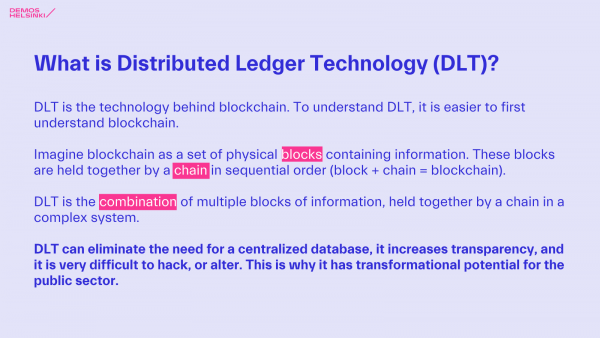The European Union’s focus on digitalization Digitalization, continuously in progress, transforms the very fundamental structures of our economies and societies. On September 15, 2021, the European Commission published its State of the Union and, along with it, a Path to the Digital Decade. The EU wants “to be digitally…
The European Union’s focus on digitalization
Digitalization, continuously in progress, transforms the very fundamental structures of our economies and societies. On September 15, 2021, the European Commission published its State of the Union and, along with it, a Path to the Digital Decade. The EU wants “to be digitally sovereign in an open and interconnected world, and to pursue digital policies that empower people and businesses to seize a human-centered, sustainable and more prosperous digital future”. This positioning is yet another opening for the Commission, and the EU as a whole, to link digitalization with the sustainable green transition.
As a Europe fit for the digital age is underway, the intersections between digitalization and other policy sectors are becoming more explicit. For example, the Commission follows a conventional stance, treating the economy and digitalization as separate priorities. However, as digital markets are becoming increasingly important for economic activity and strategy, drawing a separation between the two is ineffective.
Digitalization VS. the economy?
One of the most interesting examples of the economy-digitalization coupling is the case of Distributed Ledger Technology (DLT)*. The EU is taking steps towards recognizing this merge. For example, the EU’s Blockchain Strategy not only encourages the development of DLT but also includes plans for regulating digital markets. Moreover, the development of a Digital Euro potentially based on DLT is in motion. Finally, the Markets in Crypto-Assets Regulation (MiCA)—at the time of writing still at a proposal stage— demonstrates the impact of DLTs as a viable component of the European digital economy.
To date, much of the EU’s focus on blockchain has been on establishing funding, innovation capacities, and community initiatives such as European Blockchain Services Infrastructure and EU Blockchain Observatory & Forum. For legislators, the emphasis has been on the financial implications of crypto-assets, such as in the Digital Finance Strategy. The Commission also aims to improve the traceability of crypto-assets transfers, as part of its Anti-Money Laundering and Countering the Financing of Terrorism (AML/CFT) legislative package. The perspective of crypto-assets and currencies is also important as The Second Payment Services Directive (PSD2) and Markets In Financial Instruments Directive (MiFID II/R) are being reviewed.
The digital economy requires new kinds of policies and regulatory tools
These policies and regulations are all based on the traditional notions of scarcity and currency as a medium of exchange.
However, data and digital goods are not scarce and are by their nature anti-rival. This means that the goods don’t lose value or become exclusive—even when they are being increasingly used. In fact, anti-rival goods, like data, actually gain value the more they are shared.
To enable the idea of anti-rivalry into our economic ecosystems, we need to re-shape how we perceive basic economic institutions. This exercise is far from “merely” a cognitive one—or a question of attitudes. Even the way the EMU is built, through treaties and regulation, is based on traditional institutions and mechanisms. While technology is opening up opportunities for new economic thinking, traditional institutions are slow at responding. To truly be innovative, the EU must revisit its fundamental building blocks—such as currency, digital infrastructure, or even mobility in the labor market.
Embedding anti-rival economy into the EU’s vision for the digital economy
For these reasons, the Commission-funded research project ATARCA aims to support the EU’s vision for the digital economy. In the collaborative project, Demos Helsinki together with Aalto University, Novaqt, Streamr Network, and QBit Artifacts explore the potential of, and the conditions for, distributed ledger technology and anti-rival economy. As such, the consortium will develop policy recommendations and roadmaps for fair and sustainable digital markets. We will closely follow and interact with the multi-stakeholder EU community, and reflect on the policy momentum as the exploratory research is ongoing. Welcome on board.
You can read more about ATARCA here, or on the official website here.
This article was first published on the ATARCA website. To keep up with the project you can sign up for the newsletter here.
*What is DLT?


ATARCA: Scientific Foundation for Anti-Rival Compensation and Governance Technology
Project
June 11, 2021
DLT in public sector: Moving from transparency to accountability
Post
September 15, 2021
For blockchain to create trust, we need public governance and regulation
Post
December 6, 2021
Four blockchain experiments to transform the public sector
Post
July 12, 2021
Recommendations for DLT-powered public services
Publication
October 3, 2022
Uncertainties and futures of DLT in European public sectors
Publication
January 26, 2022
To change system settings, click here.
Publication
February 15, 2023
Vision for Trust-based Transformation Through Distributed Ledger Technology
Publication
January 21, 2021
TOKEN: The Transformative Impact of Distributed Technologies in Public Services
Project
October 13, 2020